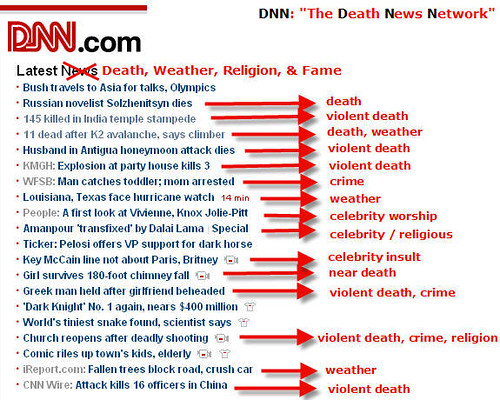Instead of the usual comment, I've devolved into one my blog replies, original comments included.
@Nolan: However it does not change the fact that if you buy a house to live in it, and the payments are reasonable for your income, then you are better off owning than renting in the long run.
This has been hashed and re-hashed on this forum and elsewhere. The data in no way supports your thesis and I would urge not to spread such dangerous information.
At best, owning a home is a lifestyle decision with a set of associated risks. We can argue this elsewhere, but there are a dozen guys who've run the spreadsheets. You've successfully listed a few of the risks:
... the ones who can’t afford their payments, speculators (like you said), and the ones who panic and sell when housing prices fall.
but there are more:
- Risk - People with jobs that are heavily dependent on some local resource (mill-towns, mining towns, etc). This is actually doubly risky, b/c if you're losing your job it's likely that nobody else is moving in which means that your housing "investment" won't be doing well at the very time you need to sell.
- Risk - People working in highly transient / mobile fields. If you're in IT and changing jobs every 3-5 years (quite common), being tied to a location can be quite costly. If you're an athlete, a long-haul trucker, etc. similar logic would apply.
- Risk - purchasing a high-maintenance house. Even if you can "reasonably afford the payments", you still need to afford the maintenance. A 20k basement repair on a 120k house is a realistic risk and would definitely wreck your financial plans.
- Risk - property tax increases. As independent homeowners you're still on the hook for these taxes, Yes there are processes, but it takes personal time (read "money") and you don't necessarily have a lobbyist group on your side.
- Risk - school district changes: This is primarily in the US where people pay premium home prices for "top-rated" school districts. A certain % of value is actually tied to the continued school district prosperity. Buying a house for your 5-year old could be a liability by the time they're 18 and it's time to "downsize".
- Risk - Energy Costs: once you buy a place you're locked in to paying the energy required to keep that place running. If your rental place sucks up too much energy (due to size or just poor maintenance), you can move at the end of the lease or request changes (you're income, you have a good bargaining chip). If your own home leaks heat (or cold), you're on the hook for this cost. I don't know if you've noticed, but energy costs are going up almost universally. Right now, 50% of the earth's population is using about 4% of the world's energy, and we still haven't figured out that whole "cold fusion" thing. That's a lot of pressure for energy costs to continue to rise.
- Risk - Politics: don't like that new factory that's being built just around the corner? Think it will influence your house price? Well, the ball's in your court now, b/c it won't be easy to move, especially with that factory weighing down on your home value. (also, see property taxes)
If you are making above-average income you will not be "priced-out forever". The rules of supply & demand still apply. Either house prices will deflate drastically or the salary prices will rise to match the growing cost of living. House prices do tend to be stubborn, but since 1990 we've since house prices grow well beyond the rate of inflation, with people re-investing the money from their first place into the second (and third and so on). Barring government interference they're going to dip like every other investment.
Personal aside: I expect this dip to happen when the average baby boomer retires and "downsizes". But it may be happening sooner, check out this blog on Edmonton housing market (with lots of pretty charts). Notice the Supply vs. Demand and the Price and Inventory Comparisons?
If you want a home and can't afford one, just keep saving your ducats and investing elsewhere. Especially the 20-somethings and 30-somethings with "good jobs" (i.e. average or above-average income).
Did I miss any home-owner risks?
There are definitely some renters risks, but that's a different post.
